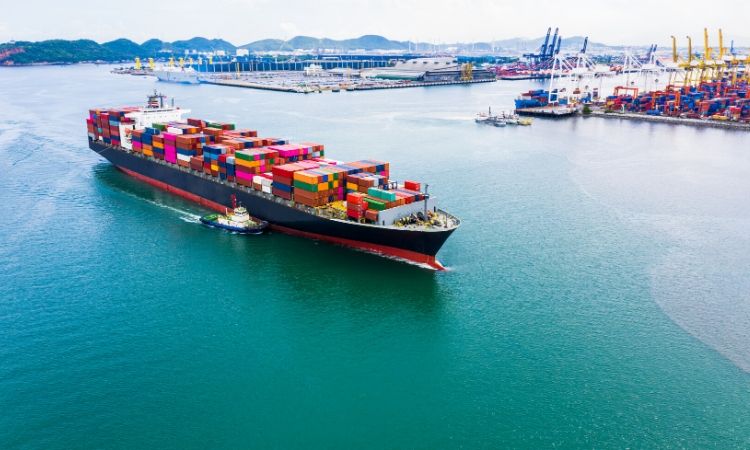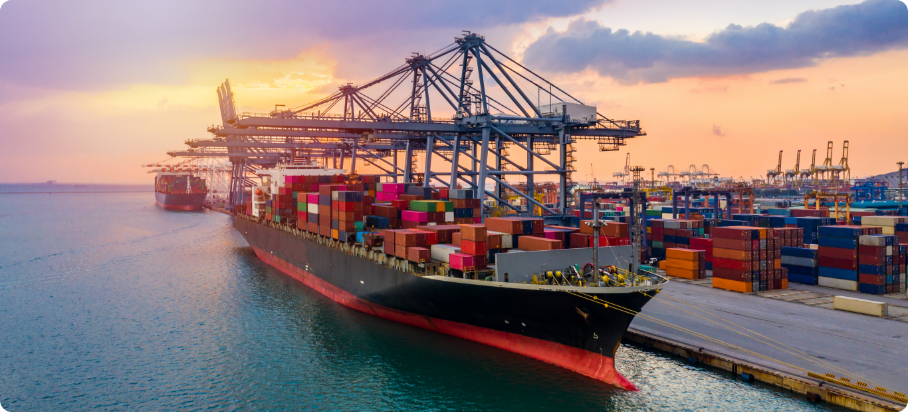FCL Shipping Strategies: Optimize Your Supply Chain With Fcl Freight

Freight Container Load (FCL) shipping is an integral part of any supply chain management strategy. It allows companies to move products between countries and across networks quickly, cost-effectively, and safely. FCL freight has become increasingly popular in recent years due to its efficiency and reliability. Proper use of FCL can significantly reduce costs, optimize lead times, and improve customer satisfaction. This article will discuss strategies for optimizing the supply chain with FCL freight, from consolidating shipments to ensuring compliance with trade regulations.
Table of Contents
Consolidating Shipments
Consolidating shipments is one of the most effective strategies for optimizing your supply chain with FCL freight. Consolidation involves combining multiple smaller orders into one large shipment, allowing companies to take advantage of economies of scale and save on shipping costs. It also reduces the amount of paperwork required and helps streamline processes.
Consolidating orders from multiple suppliers can reduce transit times and improve overall efficiency. To effectively utilize this strategy, businesses should work closely with their logistics providers to ensure that all necessary information is included in each shipment and that all regulations are followed. It is also vital to ensure that shipments are tracked and monitored throughout the process.
Automation
Automation is another critical strategy for optimizing the supply chain with FCL freight. By utilizing automated systems, businesses can streamline their processes and increase efficiency. Automated systems can reduce paperwork and time-consuming manual tasks such as order entry and tracking. Automation can help companies comply with regulations, ensuring that shipments comply with all applicable laws.
Automation also makes it easier to monitor shipments and track progress in real-time. By taking advantage of automated tools, businesses can ensure that their supply chain is efficient and compliant. Working with an FCL logistics provider with automation experience and the necessary support would be best.
Working With a Reliable Partner
Working with a reliable logistics provider is essential for optimizing the supply chain with FCL freight. A good logistics partner will have extensive experience in international shipping, knowledge of customs regulations, and access to resources such as port operators and trucking companies. It is also vital to ensure that the logistics provider has experience with FCL freight, as this type of shipment requires special handling and equipment.
Working with a reliable partner can help companies reduce costs, manage paperwork, and maintain compliance with regulations. Ensuring the logistics provider has a good track record and excellent customer service is also essential.
Optimizing Lead Times
Lead times are another critical factor in optimizing the supply chain with FCL freight. Shipment delays can significantly impact customer satisfaction and profitability, so it is essential to ensure that shipments arrive on time. Companies should work closely with their logistics providers to identify potential bottlenecks and plan for contingencies in case of unexpected issues such as port strikes or bad weather.
Shortening lead times can often be achieved through careful planning and effective communication across the supply chain. Using a logistics provider specializing in FCL freight can help reduce delivery times and improve customer satisfaction. It is also essential to ensure that key stakeholders such as suppliers, carriers, and customs agents work together towards the same goal.
Incorporating Tracking Technology
Incorporating tracking technology such as GPS is another essential strategy for optimizing the supply chain with FCL freight. Using real-time tracking information can help companies monitor their shipments throughout the journey and anticipate any potential issues before they become problematic. Tracking technologies can also provide valuable insights into lead time performance and customer service levels, allowing businesses to make informed decisions about optimizing their supply chains.
It is essential to ensure that all parties involved in the shipment have access to tracking data and that the technology is reliable and up-to-date. Incorporating other tracking technologies such as RFID, IoT sensors, and blockchain would also be beneficial.
Ensuring Compliance
Ensuring compliance with trade regulations is essential for optimizing the supply chain with FCL freight. Companies must know applicable laws, including customs and country-specific regulations. Ensuring all paperwork is accurate and complete is vital, as mistakes can lead to costly delays. Working with a reliable partner who understands the complexities of international shipping can help companies ensure that their shipments comply with all requirements.
Working closely with customs agents can identify potential issues before they become problematic. It is also vital to ensure that customs brokers are experienced and knowledgeable about the laws in each country.
Utilizing Data Analytics
Data analytics is another critical strategy for optimizing the supply chain with FCL freight. Data analytics can help companies identify potential issues, uncover inefficiencies, and improve performance. Businesses can gain valuable insights into customer behaviors and market trends by using predictive algorithms and AI-based software to analyze large volumes of data. It can help them anticipate demand fluctuations and plan accordingly.
Data analytics can also allow companies to detect anomalies in their shipments and take proactive steps to ensure compliance with regulations. Working with a logistics provider that offers access to powerful analytics tools would be beneficial.

